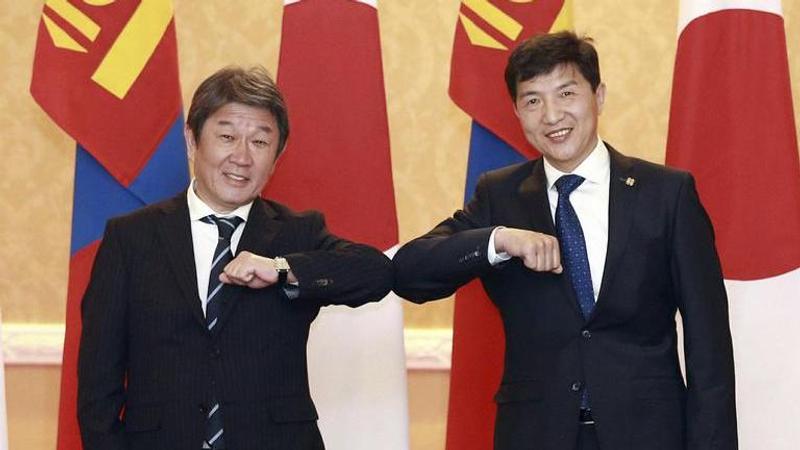Published 02:19 IST, October 10th 2020
Japan, Mongolia to cooperate on ‘Free and Open Indo-Pacific’ in a bid to counter China
The foreign ministers of Japan and Mongolia reached an agreement on Friday, October 9 to work together on promoting a “Free and Open Indo-Pacific".

The foreign ministers of Japan and Mongolia reached an agreement on Friday, October 9 to work together on promoting a “Free and Open Indo-Pacific", a vision that Tokyo is pushing along with the United States to regulate China's growing prowess in the region.
As per reports, Japanese Foreign Minister Toshimitsu Motegi held a high-level discussion with his Mongolian counterpart Nyamtseren Enkhtaivan in Ulaanbaatar on Friday. In addition, Motegi's trip comes after US Secretary of State Mike Pompeo canceled his trip to Mongolia following Trump's COVID-19 diagnosis.
US, Japan push for FOIP
The Japanese foreign minister, who earlier agreed with counterparts from the US, Australia, and India at “Quad” talks in Tokyo on Tuesday, is looking for more countries to support the FOIP concept in a bid to strengthen security and economic cooperation to open up sea lanes to the Middle East.
Addressing a press conference, Japanese and Mongolian ministers promised to cooperate further in achieving the FOIP. In addition to this, the two sides also agreed to heighten security, health, and economic cooperation. According to the reports, both the countries also signed a $235 million emergency aid deal to help the hard-hit Mongolian economy and fund medical equipment.
Meanwhile, Japan and the US are pushing to promote the FOIP which will bring other "likeminded" countries together against China’s growing influence in the region. While China has long laid claims to the South China Sea, the United States has opposed these claims and sent warships to guard the contested waters.
China has staked claims to nine-tenths of the South China Sea; the resource-rich waters see approximately $3 trillion worth of trade pass through it every year. Several other nations in the region like Brunei, Malaysia, the Philippines, Taiwan, and Vietnam have also rejected China’s expansive territorial claims and put forward competing territorial claims of their own.
Inputs/Image: AP
Updated 02:19 IST, October 10th 2020




